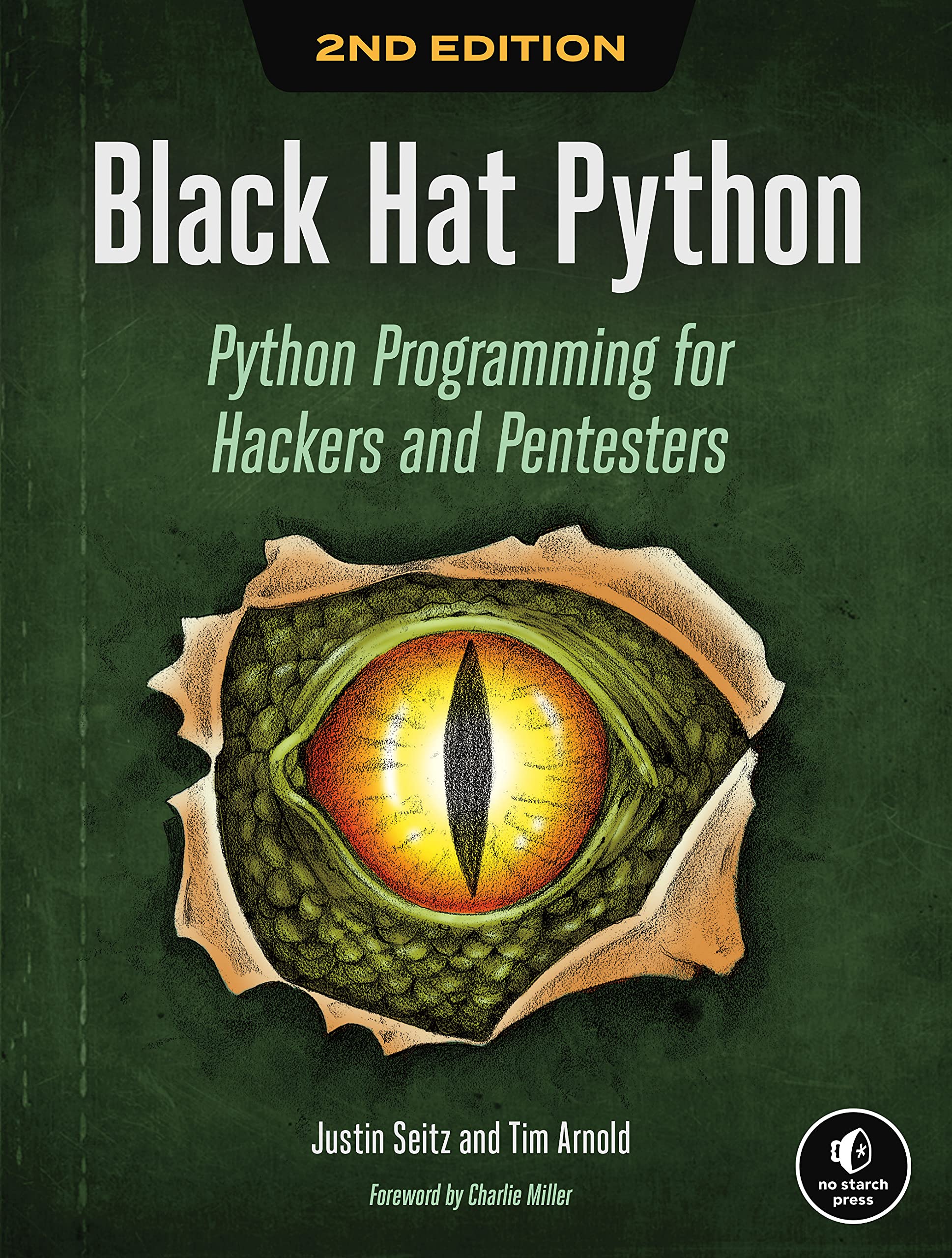Paperback, 216 pages
Published April 14, 2021 by No Starch Press.
Python Programming for Hackers and Pentesters

Paperback, 216 pages
Published April 14, 2021 by No Starch Press.
Fully-updated for Python 3, the second edition of this worldwide bestseller (over 100,000 copies sold) explores the stealthier side of programming and brings you all new strategies for your hacking projects.
When it comes to creating powerful and effective hacking tools, Python is the language of choice for most security analysts. In this second edition of the bestselling Black Hat Python, you’ll explore the darker side of Python’s capabilities: everything from writing network sniffers, stealing email credentials, and bruteforcing directories to crafting mutation fuzzers, investigating virtual machines, and creating stealthy trojans.
All of the code in this edition has been updated to Python 3.x. You’ll also find new coverage of bit shifting, code hygiene, and offensive forensics with the Volatility Framework as well as expanded explanations of the Python libraries ctypes, struct, lxml, and BeautifulSoup, and offensive hacking strategies like splitting bytes, leveraging computer vision libraries, and scraping websites.
You’ll …
Fully-updated for Python 3, the second edition of this worldwide bestseller (over 100,000 copies sold) explores the stealthier side of programming and brings you all new strategies for your hacking projects.
When it comes to creating powerful and effective hacking tools, Python is the language of choice for most security analysts. In this second edition of the bestselling Black Hat Python, you’ll explore the darker side of Python’s capabilities: everything from writing network sniffers, stealing email credentials, and bruteforcing directories to crafting mutation fuzzers, investigating virtual machines, and creating stealthy trojans.
All of the code in this edition has been updated to Python 3.x. You’ll also find new coverage of bit shifting, code hygiene, and offensive forensics with the Volatility Framework as well as expanded explanations of the Python libraries ctypes, struct, lxml, and BeautifulSoup, and offensive hacking strategies like splitting bytes, leveraging computer vision libraries, and scraping websites.
You’ll even learn how to:
Create a trojan command-and-control server using GitHub Detect sandboxing and automate common malware tasks like keylogging and screenshotting Extend the Burp Suite web-hacking tool Escalate Windows privileges with creative process control Use offensive memory forensics tricks to retrieve password hashes and find vulnerabilities on a virtual machine Abuse Windows COM automation Exfiltrate data from a network undetected
When it comes to offensive security, you need to be able to create powerful tools on the fly. Learn how with Black Hat Python.